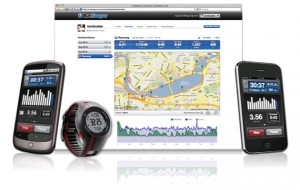Big Data Week - billed as a global platform of interconnected community events - is taking place in London this week. The event's goal is to explore the challenges and opportunities of managing and utilising Big Data. I attended a presentation in London yesterday morning, hosted by FreshNetworks, a social business consultancy, which posed the question: "Will customers kill off Big Data?"
Of course, Big Data is a much-used term with a variety of definitions. But according to Paul Oram, Chief Technical Officer at Fresh Networks, it's all about the 4 Vs: Volume, Velocity, Variety and Veracity.
The recent explosion in the amount of trackable consumer data available, and the increasingly sophisticated tools marketers use to analyse it, has made "predictive analysis" possible, Oram suggested. And this isn't necessarily a good thing for the typical consumer. From credit card companies that can apparently predict divorce to a father discovering - via a targeted coupon that his teenage daughter was pregnant some might argue that Big Data can feel like Big Brother.
Convenient or creepy?
Matt Rhodes, Director at Fresh Networks, cited a recent US survey which found that 68% of consumers are aware that brands listen to what they say online. The same study found that 51% of consumers do not want brands to listen to their online conversations and indeed 43% of them considered social listening an invasion of their privacy.
Yet, the study also found that if consumers understand the benefits they get as a result of being listened to in this way - such as receiving personalised products and improved customer service - they are more accepting. As Rhodes pointed out, "if brands do not explain the value (of sharing their data) consumers can react badly… and customers will start retreating and withholding what they are willing to share".
So how can brands utilise Big Data in a way that is convenient without being too intrusive or creepy?

Runkeeper - source: celularix.com
Rhodes cited RunKeeper - a mobile app that enables users to track their running progress - as an example of how data can be used to enhance consumers' lives. He also identified financial services as a sector that is using Big Data in very interesting ways. One example comes from Moneysavingexpert a UK consumer finance information website, which recently launched Cheap Energy Club, an initiative that involves asking consumers for access to their energy consumption data and offering bespoke low-cost energy deals in return.
Insurance as a category is also using Big Data in increasingly sophisticated ways. Increasingly, automotive insurance companies are looking at ways of tailoring premiums based on an individual driver's behaviour. In the healthcare sector, companies such as PatientsLikeMe - a patient network that utilises real-time research to advance medicine - encourage people with a health condition to share their health experiences for the benefit of the wider community. The idea being, the more data that can be gleaned from patients suffering from a particular condition, the more medicines and healthcare can be improved for the wider group.
Such initiatives - if conducted in a transparent way - will avoid the "Big Brother" factor by making it clear to the consumer what benefit or value they get from their data exchange.
Who owns our data?
Rhodes urged the audience to be mindful that "social data are consumers' memories". Such data - tweets, photos, status updates etc. - are, he reminded us, the digital equivalent of an analogue diary. This data is, therefore, valuable to the consumer, and "a monetary value cannot be put on such memories".
Yet with such high value attached to digital assets there remains ambiguity about who owns consumers' data. According to Rhodes data is owned by:
- Brands/businesses - such as the information stored on customer loyalty cards.
- Public bodies - such as government data, healthcare records etc.
- Consumers - although this is of course debatable. Who owns or controls your tweets, your Facebook updates, your photos on instagram? You, or the social media platforms?
Data ownership issues are also causing concern among regulators, with the EU currently mulling over tough new Data Protection regulations that include a proposal to give citizens the "right to be forgotten" enabling citizens to delete their private information from the databases of companies after a set period of time.
Consumer concern about the permanence of their online data trails might arguably be seen in the success of services like Snapchat, a photo messaging mobile app that apparently enables users to set a time limit (10 seconds) for recipients to view a photo, after such time the data is deleted from the recipient's device, and company's servers. That said, as Rhodes pointed out, data that consumers ask to be deleted is "never deleted, it's just tagged as deleted". Oman agreed, saying "there is an illusion of transient data" on the part of consumers and regulators alike.
Looked at one way, the Big Data issue has become a battle, with companies on one side and consumers and regulators on the other. But will customers kill Big Data's ambitions? Only time will tell.

